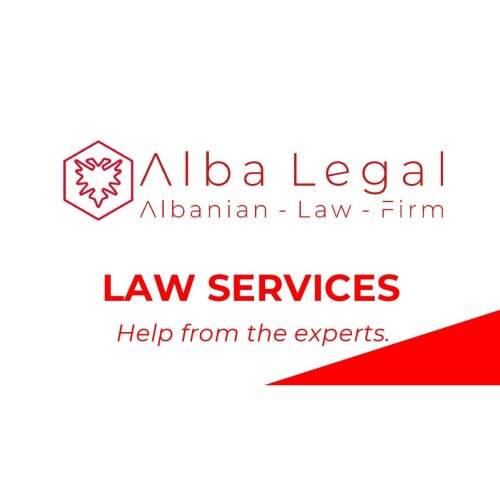What are the key regulatory steps for establishing a private equity fund in Albania and securing investor commitments?
Lawyer Answers

mohammad mehdi ghanbari
Hello
Establishing a private equity fund in Albania requires navigating a developing regulatory landscape, with the primary oversight from the Albanian Financial Supervisory Authority (AFSA). The key legal framework is the Law on Collective Investment Undertakings, which governs Alternative Investment Funds (AIFs), the category under which a private equity fund would typically be established.
Regulatory Approvals and Licensing
To establish a private equity fund in Albania, the primary regulatory body to engage with is the Albanian Financial Supervisory Authority (AFSA). The fund must receive authorization from the AFSA before it can operate.
The main piece of legislation governing this process is the Law on Collective Investment Undertakings, which came into effect on June 20, 2020. This law provides the framework for the authorization, supervision, and oversight of Alternative Investment Funds (AIFs). While this law is central, Albania's legal framework has been described as somewhat fragmented, with other relevant laws including the Law \"On Securities\" (2008) and the Law \"On Banks in the Republic of Albania\" (2006).
For the investments the fund plans to make in local small and medium-sized enterprises (SMEs), especially if they qualify as \"strategic investments,\" you may need to comply with Law No. 55/2015, \"On Strategic Investments\". This involves submitting applications to the Albanian Investment Development Agency (AIDA) with detailed documentation.
Investor Disclosures
When raising capital, firms are required to provide certain disclosures to both regulators and investors. Under the Law on Collective Investment Undertakings, a fund must regularly disclose its risk management processes, including the main markets and instruments it trades in, its principal exposures, and any concentrations of risk. For investments that fall under the \"strategic investment\" category, the investing entity must provide an investment business plan, a financing plan, and an assessment of the project's social and economic impact.
Formation Timeline
The specific timeline for the formation of a private equity fund in Albania is not detailed in the available information. The process would involve preparing the required legal and financial documentation, submitting an application to the AFSA, and undergoing the authority's review and authorization process.
Ongoing Compliance Obligations
Once established, a private equity fund in Albania has several ongoing compliance responsibilities. These include:
Continuous Monitoring: The fund will be under constant monitoring by the AFSA.
Financial Reporting: Firms must file annual, auditor-certified accounts and other periodic financial reports with the AFSA.
Risk Management Disclosure: Regular reporting on risk management practices, including markets, instruments, and risk concentrations, is mandatory.
AML/CFT Compliance: The fund must adhere to Anti-Money Laundering and Combating the Financing of Terrorism (AML/CFT) regulations, which includes performing customer due diligence.
General Reporting: Other annual filings, audits, and reporting obligations may be required.
Tax Considerations
Albania's tax policy does not currently offer special holidays or preferential treatment for investments in the capital market, including private equity.
Taxation of the Fund: Capital gains realized by the fund are generally treated as taxable income and are subject to the corporate income tax rate, which can be 0%, 5%, or 15%.
Taxation of Investors: For individual investors, income derived from investments is subject to a personal income tax rate of 15%. However, income from dividends is taxed at a lower rate of 8%.
Capital Gains: The taxable income from the sale of financial securities is calculated as the difference between the sale price and the purchase price. Any losses incurred from the sale of a security can be used to offset taxable investment income from other securities within the same tax year. The tax treatment for income from divestiture is similar to that of passive income sources like government bonds, which some view as a disincentive for venture capitalists.

mohammad mehdi ghanbari
Hello
Establishing a private equity fund in Albania requires navigating a developing regulatory landscape, with the primary oversight from the Albanian Financial Supervisory Authority (AFSA). The key legal framework is the Law on Collective Investment Undertakings, which governs Alternative Investment Funds (AIFs), the category under which a private equity fund would typically be established.
Regulatory Approvals and Licensing
To establish a private equity fund in Albania, the primary regulatory body to engage with is the Albanian Financial Supervisory Authority (AFSA). The fund must receive authorization from the AFSA before it can operate.
The main piece of legislation governing this process is the Law on Collective Investment Undertakings, which came into effect on June 20, 2020. This law provides the framework for the authorization, supervision, and oversight of Alternative Investment Funds (AIFs). While this law is central, Albania's legal framework has been described as somewhat fragmented, with other relevant laws including the Law "On Securities" (2008) and the Law "On Banks in the Republic of Albania" (2006).
For the investments the fund plans to make in local small and medium-sized enterprises (SMEs), especially if they qualify as "strategic investments," you may need to comply with Law No. 55/2015, "On Strategic Investments". This involves submitting applications to the Albanian Investment Development Agency (AIDA) with detailed documentation.
Investor Disclosures
When raising capital, firms are required to provide certain disclosures to both regulators and investors. Under the Law on Collective Investment Undertakings, a fund must regularly disclose its risk management processes, including the main markets and instruments it trades in, its principal exposures, and any concentrations of risk. For investments that fall under the "strategic investment" category, the investing entity must provide an investment business plan, a financing plan, and an assessment of the project's social and economic impact.
Formation Timeline
The specific timeline for the formation of a private equity fund in Albania is not detailed in the available information. The process would involve preparing the required legal and financial documentation, submitting an application to the AFSA, and undergoing the authority's review and authorization process.
Ongoing Compliance Obligations
Once established, a private equity fund in Albania has several ongoing compliance responsibilities. These include:
Continuous Monitoring: The fund will be under constant monitoring by the AFSA.
Financial Reporting: Firms must file annual, auditor-certified accounts and other periodic financial reports with the AFSA.
Risk Management Disclosure: Regular reporting on risk management practices, including markets, instruments, and risk concentrations, is mandatory.
AML/CFT Compliance: The fund must adhere to Anti-Money Laundering and Combating the Financing of Terrorism (AML/CFT) regulations, which includes performing customer due diligence.
General Reporting: Other annual filings, audits, and reporting obligations may be required.
Tax Considerations
Albania's tax policy does not currently offer special holidays or preferential treatment for investments in the capital market, including private equity.
Taxation of the Fund: Capital gains realized by the fund are generally treated as taxable income and are subject to the corporate income tax rate, which can be 0%, 5%, or 15%.
Taxation of Investors: For individual investors, income derived from investments is subject to a personal income tax rate of 15%. However, income from dividends is taxed at a lower rate of 8%.
Capital Gains: The taxable income from the sale of financial securities is calculated as the difference between the sale price and the purchase price. Any losses incurred from the sale of a security can be used to offset taxable investment income from other securities within the same tax year. The tax treatment for income from divestiture is similar to that of passive income sources like government bonds, which some view as a disincentive for venture capitalists.

ALBA - LEGAL - ALBANIAN LAW FIRM
Kind regards,

ALBA - LEGAL - ALBANIAN LAW FIRM
Establishing a private equity fund in Albania generally requires structuring the fund as an investment vehicle and obtaining authorization from the Albanian Financial Supervisory Authority (AMF), including licensing of the fund and, where applicable, the fund manager, approval of the prospectus/private placement memorandum, internal rules, depositary appointment, and AML/compliance framework. Investors must receive full pre-investment disclosures on strategy, risks, fees, governance, valuation, and exit policies; formation typically takes approximately 3–6 months depending on the structure and AMF review timeline. Ongoing obligations include periodic reporting to AMF, audited financial statements, investor reporting, valuation and custody controls, AML/KYC, and corporate governance compliance, while tax planning must address fund taxation vs. pass-through treatment, withholding on distributions, capital gains, VAT on management fees, and double-tax treaty optimization. We would be glad to assess your objectives and propose the most efficient regulatory and tax structure.
Kind regards,

Law Consulting Manaj
Thanks for reaching out,
The matters you raised are all highly relevant and would benefit from a more detailed discussion tailored to your purposed structure and your investor profile.
We would be pleased to schedule a call to discuss your case in detail walk you through applicable regulatory Albania framework.
Please let us know your availability over the coming days , or feel free to nsuggest a convenient time , and we will be happy to coordinate accordingly.
Best Regards,
Shefika Manaj
Free • Anonymous • Expert Lawyers
Need Personal Legal Help?
Connect with experienced lawyers in your area for personalized advice on your specific situation.
No obligation to hire. 100% free service.
Related Legal Experts
Get personalized help from lawyers specializing in this area


All lawyers are verified, licensed professionals with proven track records


